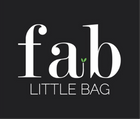
An Environmental Investigation Into The Companies Dominating The Period Market
Do you remember buying your first period products? Most of us probably spent some time choosing which kind of product to use, but did we think about which company to buy from?
Nowadays, as the gigantic environmental and social impacts of businesses are increasingly clear, we have a responsibility as consumers to think about this-especially with the big period companies. After all, the average woman uses 5 to 15,000 tampons and pads in her lifetime!
By choosing which period product company to buy from, we have a great opportunity to support those trying to become more ethical and sustainable.
What Are The Largest Tampon Companies?
There are several major corporations with a stake in period products, but the major player is Procter & Gamble. This will probably come as a surprise because you don’t see Procter & Gamble’s name mentioned much on period products. But when you find out that they own both Tampax and Always, the pieces begin to fit together. Tampax alone held 29% of the global tampon market as of 2020.
How Do The Big Period Companies Impact The Environment?
Procter & Gamble hasn't managed to create plastic-free period products. This can lead to period pollution when the plastic is flushed and makes its way into the ocean, reminding us of the environmental importance of binning your tampons and pads using a Fab Little Bag. On top of this, until 2019, Procter & Gamble made all their pads and tampons from non-organic cotton, which guzzles 10x more water than organic cotton and requires nitrous-oxide-emitting fertiliser, which can create water pollution when washed into rivers. (City to Sea: ‘Why Go Organic This Organic September?’)
The big period companies are somewhat trying to clean up their act, thanks to pressure from consumers, competitors, and activists. Procter & Gamble is now more transparent with the ingredients they use and in some products they are now using organic cotton and cardboard or plant-based applicators. They’ve also made broader environmental commitments, aiming towards Net Zero emissions for Scope 1 and 2 by 2040.
But there’s still much to be done. For one thing, they continue selling non-organic cotton period products with plastic applicators and wrapping. Even with their organic cotton options, this only applies to the core of the tampon, and their plant-based applicators contain 10% non-plant-based material. What’s more, their Net Zero goals do not include targets for Scope 3 emissions, usually the biggest category.
Three Women-Run Menstrual Hygiene Companies Challenging The Big Period Companies
There are plenty of companies shifting consumers towards reusable period products like menstrual cups and period pants. But the big period companies are also being challenged on their own turf (disposable period products) by an army of plucky start-ups. Here are some of our favourites…
-
Natracare - Susie Hewson
Natracare are the ultimate trail-blazers in the eco-friendly period product industry. Founded in 1989, they started addressing sustainability issues within the period industry long before this became mainstream. Natracare makes organic cotton period products which are almost entirely home compostable, including the packaging. Their Regular Organic Cotton Tampons are cheaper than Procter & Gamble’s partially sustainable Tampax Cotton Protection. They donate at least 1% of their annual sales to environmental causes.
-
Freda - Affi Parvizi Wayne
Freda makes 100% organic cotton non-applicator tampons. Like Natracare’s tampons, these are cheaper than Tampax Cotton Protection. Freda’s pads use sustainable wood pulp for the absorbent core, and biodegradable materials for the wings and wrapping. They are chemical- and fragrance-free. To top things off, Freda work with the charity Bloody Good Period to help end period poverty, supplying period products to people that need them at no profit.
3. Unicorn Cup - Julie Fyfe
Unicorn Cup is challenging the entire pad and tampon industry through making reusable silicone menstrual cups. Beyond the sustainability advantages of menstrual cups, they are also really convenient, lasting up to 12 hours before they need to be emptied. At £19.99, a Unicorn Cup presents more of an upfront cost than buying tampons or pads. However, you can use it for 5 to 10 years, so in the long term using a menstrual cup can save you quite a bit of money! There are now many cups on the market but theses are thinner than most and come with a cool carry case and are super easy to clean !
Your Period, Your Choice
Now equipped with the knowledge of how period companies can impact the environment through their products AND their broader social and environmental commitments, you have the power to make informed consumer choices. So next time you are walking down the aisle at Sainsbury’s, or browsing online, remember that the decisions you make about your period can change the world!
Your friendly fabber
Abigail Nott
